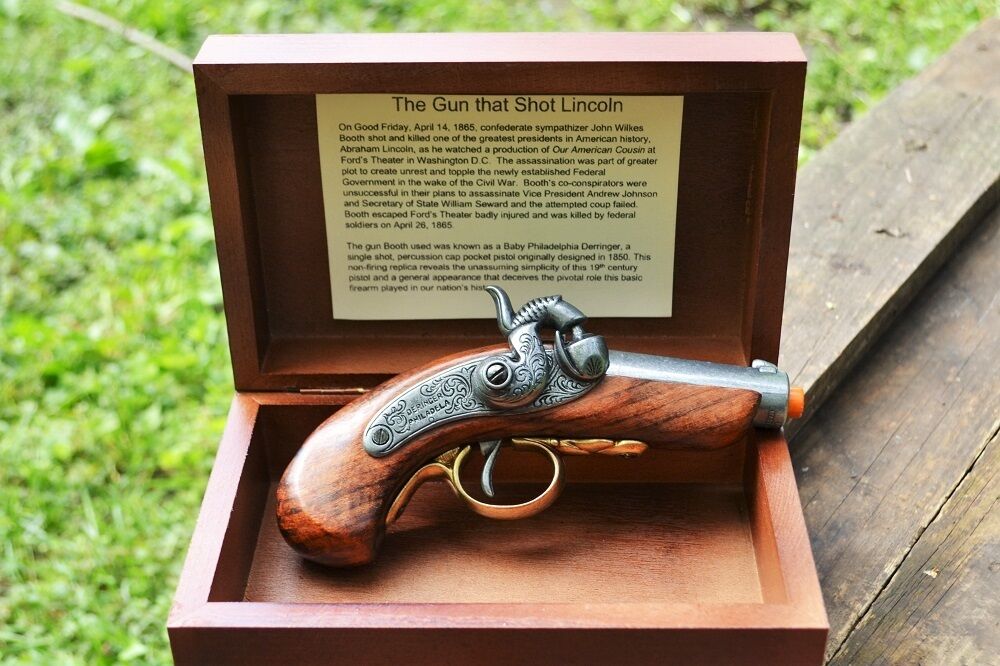
This very small 6 inch Derringer was used by John Wilkes Booth in the shooting of President Abraham Lincoln, arguably the most valuable gun in the world.
If you enjoy gun collecting and have some firearms that are heirlooms or investment pieces, you may want to pass those items along to friends and loved ones who would appreciate them. But with all the federal and state regulations in place concerning the ownership of firearms, how do you safely and legally transfer a gun to a beneficiary?
State and Federal Regulations
When administering an estate containing firearms, you have to consider the laws where the gun(s) are located and where the beneficiary lives. You also need to consider federal laws, such as the National Firearms Act. The NFA regulates the registration and ownership of Class 3 weapons, which include fully automatic weapons, machine guns, short barreled rifles, short barreled shotguns, sound suppressors, and other similar devices. These Class 3 firearms cannot be transferred without the approval and involvement of the Bureau of Alcohol, Tobacco, Firearms and Explosives (BATFE). Those in possession of a Class 3 firearm without BAFTE approval may face federal fines up to $250,000 and imprisonment of as long as 10 years – not to mention the separate state fees and penalties.
Gun Trusts
Many of those who are in possession of a Class 3 firearm, who want to protect their beneficiaries from any legal complications, chose to transfer their gun(s) using a Gun Trust. A gun trust is designed to protect the gun owner from violations of the National Firearms Act while also ensuring that the guns are protected and passed to the beneficiaries of the trust. More specifically, a gun trust is a special purpose revocable living trust. Its only purpose is to hold the firearms. The gun owner creates the trust, and while they are living, are both the trustee and beneficiary. They appoint successor trustees and lifetime beneficiaries, who will inherit the firearms after the original owner passes away. Because a gun trust is a revocable living trust, it can be amended or revoked at any time.
Benefits of a Gun Trust
With a gun trust, you can expedite the transfer of a firearm between the original owner and the beneficiary. (Understandably, it’s not always a good idea for firearms to remain inside a home, after the homeowner has passed away). Under the trust, the transfer application is sent directly to the BATFE. The local Chief Law Enforcement Officer does not necessarily have to be involved in the transfer process, which can save time. A gun trust also allows the original owner to leave specific, detailed instructions about the disposition of their firearm collection. Other advantages of a gun trust include:
- Multiple people are allowed to co-own and use a gun that’s registered in a gun trust
- Gun trusts allow for beneficiaries to be honored in the estate
- If a gun owner is deemed incompetent, the gun trust has protections in place so that the trusts (co-owners) may sell the firearms or have the items be held for a time
Have Additional Questions? Contact Our Estate Planning Team
Administering an estate with firearms can be complicated because of all the legal considerations as well as the state and federal regulations. But, the estate planning team at Brain M. Douglas & Associates can help answer any questions you may have. If you would like to learn more about estate planning and gun trusts, please reach out to us at (770) 933-9009 or via our online contact form. We’d be happy to help.


Assistance with establishing a gun trust.
Hey Brandon, give us a call! (770)933-9009